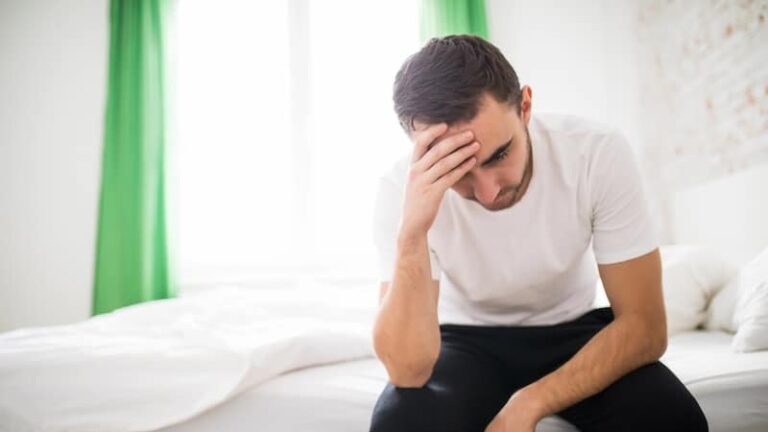Carbamazepine is a medication commonly prescribed for epilepsy, bipolar disorder, and nerve pain conditions like trigeminal neuralgia. While it’s highly effective, it’s important to be cautious when taking this medication and consuming alcohol together.
Research shows that about 40% of people with epilepsy drink alcohol. This can cause dangerous interactions with their medications. Drinking alcohol while taking this medication can raise the risk of side effects. These side effects include dizziness, drowsiness, and poor decision-making.
Our Addiction Treatment Programs

Scottsdale Rehab
Luxury Personalized Rehab

HART Rehab
Holistic Luxury Personalized Rehab

Scottsdale Detox
Luxury Medical Detox
What Does Carbamazepine Do?
This medication helps stabilize electrical activity in the brain. This can prevent seizures, treat nerve pain, and manage mood swings in bipolar disorder. For people with nerve pain, like trigeminal neuralgia, it can offer great relief. It helps calm the overactive nerves that cause sharp or stabbing pain.
Common Uses of Carbamazepine
This drug is prescribed for a range of conditions, including:
- Epilepsy: Helps control different types of seizures.
- Bipolar Disorder: Stabilizes mood swings.
- Trigeminal Neuralgia: Relieves intense facial pain.
- Nerve Pain: Useful for conditions like neuropathy or restless legs syndrome.
Overall, this is an essential medication for managing various neurological and mood disorders. It helps restore balance, providing significant relief and improving quality of life for those who need it.
What Happens When You Mix Carbamazepine and Alcohol?
Combining this medication with alcohol is not recommended due to the potential for harmful interactions. Alcohol can increase the sedative effects of the drug, leading to excessive drowsiness, dizziness, and impaired judgment. This can be especially dangerous when performing tasks that require alertness, such as driving.
Carbamazepine and Alcohol Interaction
When these two are mixed together, the carbamazepine and alcohol side effects can become much more intense and dangerous.
Both substances can interfere with brain function, but combining them heightens the risks significantly. Understanding these risks is crucial to making informed decisions about your health. The interaction between carbamazepine and alcohol is especially risky for those managing conditions like epilepsy or nerve pain.
Here’s what you should know about the potential consequences:
- Increased sedation: Both alcohol and carbamazepine are central nervous system depressants, meaning they slow brain activity. Together, they can leave you feeling intensely drowsy, dizzy, and mentally foggy.
- Cognitive impairment: Alcohol can cloud your ability to focus and make decisions. When combined with carbamazepine, this effect becomes even more pronounced, making everyday activities dangerous.
- Seizure risk: Alcohol can make seizures more likely. When combined with this medication, the risk increases. This is especially true for people using carbamazepine to treat epilepsy.
The combination of this medication and alcohol can amplify side effects and lead to serious health risks. It’s essential to avoid alcohol while using this medication to ensure both safety and effectiveness.
Carbamazepine and Alcohol Withdrawal Symptoms
Interestingly, this drug is sometimes used to help individuals going through alcohol withdrawal. This withdrawal can be difficult and even dangerous, causing symptoms like anxiety, tremors, and seizures. By stabilizing nerve activity, carbamazepine helps manage these symptoms and makes withdrawal more manageable.
Side Effects of Carbamazepine
Like all medications, using this can cause side effects. While many people don’t have any problems, some may experience mild or serious reactions. If you notice troubling side effects, talk to your doctor.
Common Side Effects of Carbamazepine
- Dizziness or drowsiness – These can be worse if you drink alcohol.
- Nausea or upset stomach
- Headaches
These side effects are usually mild and go away over time. But if they don’t, your doctor might change your dose of carbamazepine.
Serious Side Effects of Carbamazepine
Though rare, carbamazepine can cause serious side effects like:
- Allergic reactions: Skin rashes or sores, swelling, or trouble breathing.
- Blood problems: It can lower white blood cells, making you more likely to get infections.
- Liver problems: Symptoms include yellow skin or eyes, dark urine, and stomach pain.
If you notice any of these, contact your doctor right away. If you’re starting this medication, your doctor will watch for any serious side effects.
Does Drinking Alcohol and Taking Carbamazepine Raise Heart Rate?
Many people wonder if drinking alcohol while taking carbamazepine will raise their heart rate. While carbamazepine doesn’t usually affect heart rate, alcohol can.
How Alcohol Affects Heart Rate
Drinking alcohol can increase heart rate, especially in larger amounts. It can also cause irregular heartbeats, which can be dangerous. Even moderate drinking can temporarily affect your heart rate.
How Carbamazepine Affects Your Heart
Carbamazepine doesn’t typically raise heart rate, but it can cause dizziness or lightheadedness. These side effects might affect your heart or blood flow. If you drink alcohol while taking carbamazepine, it can also lead to dehydration or an electrolyte imbalance, which could affect your heart.
Take the First Step Toward Alcohol Abuse Recovery Today
Taking carbamazepine with alcohol can cause serious side effects. These include more sedation, trouble thinking, and a higher chance of seizures.
If you’re using this medication for alcohol withdrawal, it’s important to follow your doctor’s instructions closely to avoid complications. Carbamazepine can help manage withdrawal symptoms like anxiety and tremors, but it must be used carefully under medical supervision.
If you are thinking about starting carbamazepine, talk to your healthcare provider first. They can help you decide if it is the right treatment for you. Be sure to avoid alcohol and discuss any other medications or potential interactions to stay safe and maximize the benefits of your treatment.


